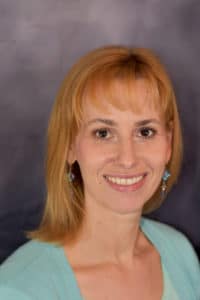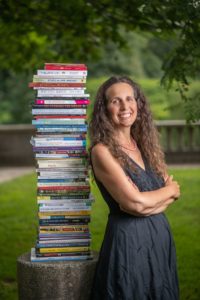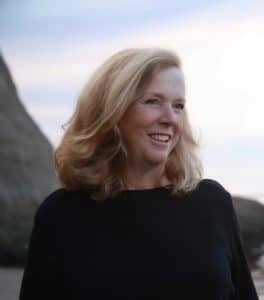You’ve started writing your nonfiction book but already feel like quitting. It’s not as easy (or as fun) as you thought it would be. But you know and follow authors who seem to churn out books consistently with ease. “What makes them different?” you wonder.
Here’s a better question: “What do they know about writing a nonfiction book effectively that you don’t?” That’s the only thing that makes them different from you.
You’re in luck. I’ve got the answer to that question.
I asked four prolific, seasoned, and successful nonfiction authors for their three best tips for writing a nonfiction book. Read them below.
But don’t just read their tips. Put them to use. Then, you can write a nonfiction book easily and effectively, too.
 Carol Tice
Carol Tice
1. Outline, outline, outline.
Take the time to create a strong outline, and the book almost writes itself. I’m doing book outline projects with all my book-ghostwriting clients, down to the subheads within in each chapter, and boy is it making life easier!
2. Structure your book.
Good nonfiction books have a tight structure that pulls the reader through to read it all. Ask yourself what structure would best serve your type of nonfiction book. Is it a chronology, like a memoir? A chronology with flashbacks? More of a cloverleaf, where a thesis adds more evidence in each chapter and circles back to that central idea? Books that aren’t well structured are those that may get initial buzz…but later, it becomes clear nobody actually read them. (A Brief History of Time by Stephen Hawking is often held out as an example of this problem.)
3. One. Chapter. At. A. Time.
Once you have your outline and structure in place, focus in on a single chapter. Don’t try to work a little bit on five different chapters at once. You’ll end up with nothing. Research and write until you have a draft of that chapter, then move forward to another.
Carol Tice is the founder of the award-winning Make a Living Writing blog (founded 2008) and Freelance Writers Den paid membership community (founded 2011). She coaches home-based freelance writers on how to grow their income with her proven program, Freelance Writers Den 2X Income Accelerator. Her own freelance business ramped to six figures in the downturn of ’08-’10. Her freelance clients have included Forbes, Entrepreneur, Seattle Magazine, Delta Sky, Costco, American Express, Deloitte, and many more. She’s the author of two print books and 10+ ebooks. Her latest release is the free ebook, The Recession-Proof Freelancer: A 12-Point Plan for Thriving in Hard Times. www.makealivingwriting.com
Jordan Rosenfeld
1. Build a top-notch table of contents (TOC).
Your TOC is your outline, the guide from which you will flesh out your nonfiction book. Work on nailing that down, and you’re well on your way.
2. Separate out time to research.
If your nonfiction book requires research, schedule that for non-writing time, because research can take you down rabbit holes and suck away time.
3. Use anecdotes.
Every nonfiction book is different, but the more you can pull in interesting, human anecdotes about people that exemplify your topic, the more relevant and interesting it will be to readers.
Jordan Rosenfeld, author of six books on the craft of writing, most recently How to Write a Page Turner, and three novels, most recently Women in Red. jordanrosenfeld.net
 Lisa Tener
Lisa Tener
1. Get clear on your vision.
If you don’t know where you’re going, it’s easy to write the wrong nonfiction book. Your vision will help you make aligned decisions that help you get there throughout the book writing process.
2. Imagine one particular reader.
When you write with a specific person in mind, your writing will naturally be more conversational and engaging. Plus, your readers will relate because you truly are writing/talking to them.
3. Unless you write first thing in the morning in a twilight state, consider doing something energizing before you write.
Walk in nature, dance, do some yoga or martial arts. This will help get your creative juices flowing.
An authority on book writing, publishing and creativity, and winner of the Silver Stevie Award for Coach/Mentor of the Year, Lisa Tener guides experts, entrepreneurs and visionaries to joyfully write and publish. Lisa has been quoted in The New York Times, featured on ABC News and more. She blogs for Medium and Thrive Global, serves on the faculty of Harvard Medical School’s publishing course, and teaches Award Winning book writing Courses. Lisa Tener’s clients have received five- and six-figure book deals from a variety of publishers, won prestigious awards and have been featured internationally from Oprah to NPR to Today to Forbes and more. www.lisatener.com
 Martha Alderson
Martha Alderson
1. Identify your reader (be specific).
2. Determine the readers’ ultimate reward for having read all the way to the end (be specific).
3. Complete a task analysis of the tasks and steps needed to achieve that goal.
Here are two examples of how I carry out these three tips.
When I started writing Boundless Creativity, I knew I wanted the reader to be transformed at profound level by the time they reached end of the workbook. To accomplish that, I deconstructed the steps toward transformation. Then, I introduced exercises and inner work in the beginning and deepened them in the middle, taking the artist or writer step-by-step through the process of transformation from self-doubt to confidence.
In the same way, before I started Writing Blockbuster Plots, I knew I wanted the writer at the end to have a complete and satisfying plot for their novel. To accomplish that end, I deconstructed the steps toward developing a plot and creating a satisfying structure for their readers. The book then became a step-by-step guide to mastering plot, structure, and scene.
Martha Alderson is known as the Plot Whisperer for her best-selling The Plot Whisperer: Secrets of Story Structure Any Writer Can Master. She writes novels for readers, plot and scene books for writers, and most recently Boundless Creativity: A Spiritual Workbook for Overcoming Self-Doubt, Emotional Traps, and Other Creative Blocks for anyone looking to enrich their lives with more creativity and inspiration. Her latest novel Parallel Lives: A 60’s Love Story is now available. She lives and writes in Santa Cruz. MarthaAlderson.com
These 12 expert tips will definitely set you up to write your nonfiction book easily and effectively. Of course, you still need to develop the habit of writing consistently. To do that, put your hands on the keyboard and write every day…even when you don’t want to, have other responsibilities, or feel as if you can’t. Write anyway.
Put the tips offered here to use. Write your nonfiction book!
What tip did you find most helpful? Tell me in a comment below. And please share this post with other nonfiction writers you know so they, too, will get motivated take on this nonfiction writing challenge.
 Would you like to write and publish nonfiction work, like articles, blog posts, books, or reports…and become a successful author? Check out the Nonfiction Writers’ University. Get the basic education you need and the coaching to help you succeed as a nonfiction writer. Take advantage of monthly live educational and group coaching events. Enjoy a 30-day trial membership for only $1.
Would you like to write and publish nonfiction work, like articles, blog posts, books, or reports…and become a successful author? Check out the Nonfiction Writers’ University. Get the basic education you need and the coaching to help you succeed as a nonfiction writer. Take advantage of monthly live educational and group coaching events. Enjoy a 30-day trial membership for only $1.
Do you want a more advanced approach to your nonfiction writing education? Join the Nonfiction Writers’ University MASTERS program. Receive ongoing live Certified High Performance Coaching (personal development), Author Training, and Authorprenuership Training as well as monthly educational and group coaching events. Learn all the steps to becoming a successful—and profitable—author. Discover how (finally) to write consistently, boldly, enthusiastically, and productively. Develop the mindsets, strategies, habits of the world’s most successful writers. Click here to learn more.
Photo courtesy of Thought Catalog
Emily Bennette says
I liked that you pointed out that it would be smart to look into doing some research about the time period. That does seem like it would help nonfiction historical books seem more realistic. It might also be smart to read how other authors have handled including historical information about certain things
Derick John says
I have only ever written nonfiction, unless it was for school. I think that writing nonfiction is much more of a job with unbreakable rules–you have to write what happened, just the same way.
Richard Scott Rahn says
This is a useful and excellent share. Will definitely share it with people I know.